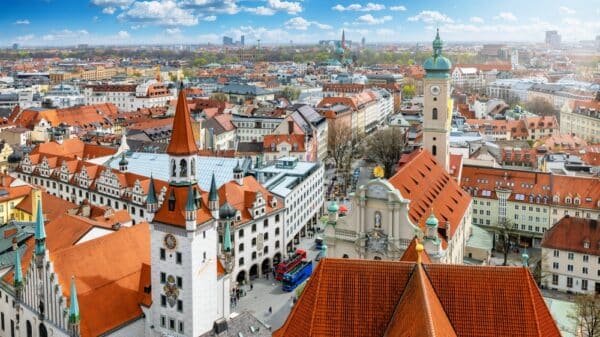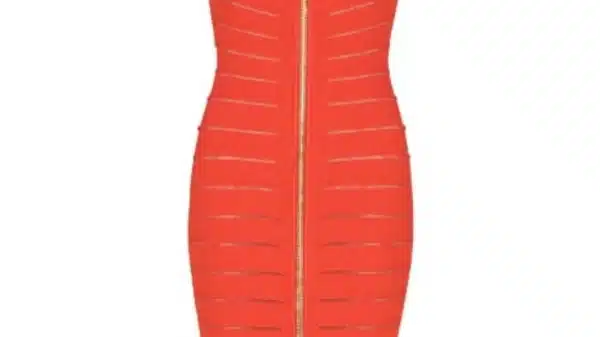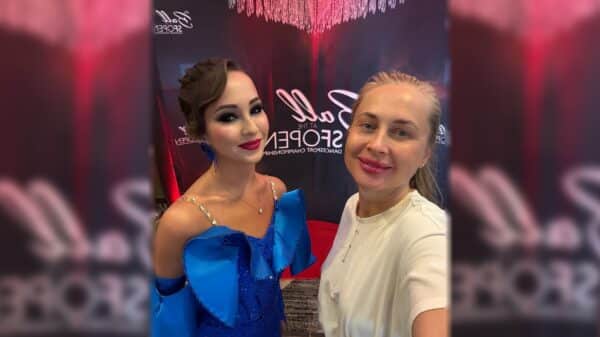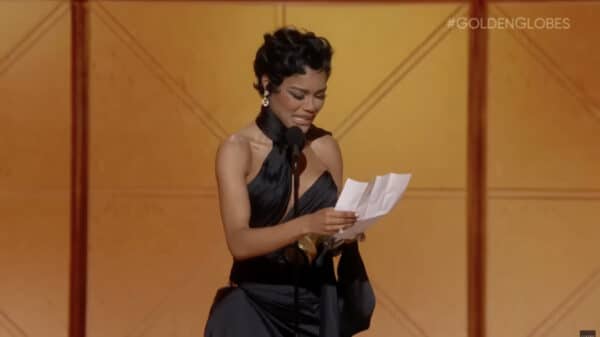When Sofi Zhihui Zhang stepped away from her doctoral program at the University of Toronto in 2024, she wasn’t leaving scholarship behind but channeling it into something transformative. By founding Mousa Art & Technology, she launched a venture that combines rigorous research with creative innovation, pioneering new approaches to digital cultural heritage.
In early 2025, Zhang founded Mousa Art & Technology. Mousa’s mission centers on making cultural collections and original artifacts accessible through digital art created with new media tools. Its debut project, Resonance: Hebei Imaginations, invited four leading digital artists from diverse contemporary fields. Each reinterpreted digitized artifacts from the Hebei Museum’s collection through their own creative perspectives. The resulting multimedia exhibition was widely acclaimed, featured on national broadcasting channels including China Central Television (CCTV) and Hebei TV, and circulated broadly on platforms such as TikTok and RedNote. Zhang’s work demonstrated how technology can spark fresh encounters with history and new strategies for engagement without flattening its complexity. The project also set new standards for artistic re-creation in heritage preservation.
A powerful recent example of new media’s transformative impact on art conservation is the reconstruction of Palmyra’s Triumphal Arch. When ISIS destroyed the 2,000-year-old Syrian monument, digital archaeology enabled the Institute of Digital Archaeology to create a full-scale marble replica in collaboration with UNESCO. The rebuilt arch was displayed in London and New York and demonstrates how digital technologies can counteract cultural destruction while creating bridges between civilizations.
Zhang is turning an exciting page in this corner of the art world. As curator and founder working at the intersection of art, technology, and heritage preservation, Zhang embodies a new model of cultural leadership. Her trajectory shows how academic rigor can fuel entrepreneurial vision, translating traditional scholarship into cutting-edge practice and building bridges across cultural and geographic boundaries. As the founder and creative director of Mousa, she is building a future in which digitized collections and ancient archives are not static records of institutions but catalysts for immersive and accessible artistic experiences.
Before Mousa, Zhang was already widely recognized as an authoritative voice in New Media Art. She has contributed to prestigious art magazines such as ARTFORUM and LEAP, where she critically engaged with some of the most prominent contemporary artists working today. Her translations of complex theoretical texts by renowned scholars such as David Wills, Zhang Ga, Sean Cubitt, and Paul Thomas demonstrate her capacity to mediate between different intellectual traditions. In addition to these associations, her academic voice remains active through presentations at prestigious creative organizations such as the European Association of Chinese Studies conference, the Long March Project, abC Art Book Fair (the first and largest art book fair in China), the KWM Art Center in Beijing, and even the British Embassy to China. These invitations from established academic and cultural institutions validate her artistic expertise and position her as both an emerging scholar and a practicing curator in the broader digital heritage field.
Zhang’s theoretical rigor underpins a curatorial practice that has taken her to leading venues worldwide. In 2019, she and collaborator Feng Junyuan won the Goethe-Institut China’s open call with Whatever Works, Whatever It Takes, a media art exhibition exploring vernacular technology and the coexistence of digital arts and technology. Featuring artists from China, Japan, Taiwan, and the U.S., the show included immersive installations and a symposium led by Professor Pang Laikwan on socialist and post-socialist art histories.
At Beijing’s Inside-Out Art Museum (2020), Zhang co-curated An Impulse to Turn, a landmark exhibition with educational programs, lectures, and the acclaimed editorial series Chronic Syndromes. She also co-produced an artist audio series with Fake Festival to foster Sino-Western exchange, while contributing translations and scholarly editing.
In 2024, she curated 女的 nǚ de: Portraits of Contemporary Chinese Women at Three Shadows Photography Art Centre, featuring Lyra Lintern. Its storytelling strength earned her an invitation from the UK Embassy in Beijing to speak alongside the artist. Most recently, at Amherst College (2025), her exhibition Laborious Hands brought together printmaking practices from China, Malaysia, Mexico, the Soviet Union, and the U.S. to examine labor, materiality, and resistance.
Looking ahead, Zhang envisions Mousa as part of a larger ecosystem of change. She aims to build a portfolio of digital heritage projects that set ethical and aesthetic standards for public art accessibility and artifact preservation, while also developing training pipelines for emerging practitioners and curators in the new media domain.
“I have had practical experience curating across diverse contemporary practices, from traditional art-making to working with digitized creations, which has allowed me to interpret how audiences engage with original artistic displays,” she says. “What I value most about my professional work is creating opportunities for the public to connect meaningfully with creations, helping them to resonate consciously and remain grounded in cultural roots.”























